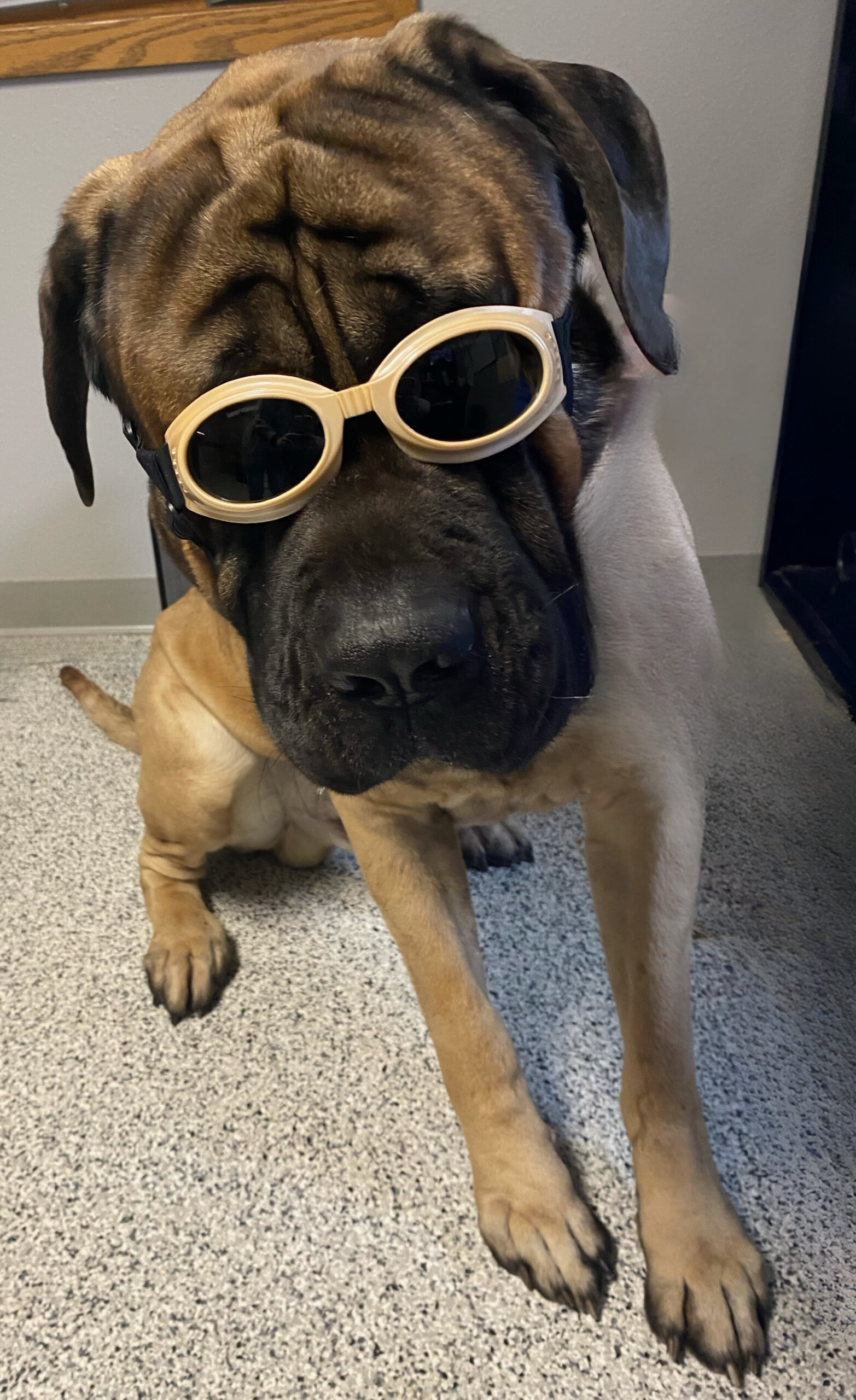
Veterinary Service
Pet Diagnostic in
Alburnett, IA
Our veterinary clinic is equipped with an updated diagnostic laboratory that allows us to conduct a wide range of tests quickly and accurately. From routine blood and urine analysis to specialized tests such as X-rays and ultrasounds, we have the tools and resources needed to diagnose medical conditions accurately to determine the most appropriate treatment plan.

Pet Diagnostics in Alburnett, IA
Seeing your pet in pain or suffering while being unable to diagnose the issue is difficult. To figure out what’s wrong and make an accurate diagnosis, our team uses cutting-edge in-house diagnostics. A speedier diagnosis results in a faster recovery! We perform diagnostic testing both internally and with a third-party lab so that we can deliver results right away.

Focused Medical Exams: Durning a focused medical exam, our team will obtain a thorough history of your pet’s symptoms, abnormal behavior, duration, and medications your pet may be on. We then will perform an accurate full physical examination of all body systems.
With this information, we create a list of possible diseases that could explain all of your pet’s symptoms and physical abnormalities. We then sit down with you and discuss what we found on the physical exam and what our list of differential diagnoses is.
Then we will discuss with you the type of diagnostic testing we may need to prove or rule out items on our list. For instance, we may need blood work, urine tests, imaging x-ray, ultrasounds, high-tech scopes, etc. We provide you with an estimate before running any tests.
Digital Radiography: A radiograph, often known as an X-ray, is an image that provides information about the inside of the body that may not be seen from the outside. Your pet’s bones, as well as internal organs, including the heart, lungs, and abdominal organs, can be examined with radiography. Radiology can be a very helpful diagnostic tool when it comes to precisely diagnose your cat.
To diagnose and assess broken bones, blockages, arthritis, lumps, and cancers, digital X-rays are frequently employed. Digital X-rays are also used to confirm pregnancies and find things ingested.
Diagnostic Ultrasounds: Similar to radiography (X-rays), ultrasonography is a diagnostic imaging method frequently used in conjunction with radiography and other diagnostics. It lets us see the heart, kidneys, liver, gallbladder, bladder, spleen, and intestines in great detail. Pregnancy monitoring and detection are additional uses for it. We collaborate closely with experts who have devoted their careers to imaging so you can benefit fully from this beautiful diagnostic tool.
In-patient Hospitalization: We provide facilities for routine hospitalization, intensive care, critical care, and isolation. Our dedicated team of doctors, technicians, and veterinary assistants will nurse and monitor your pet to ensure maximum comfort and attention. All patients’ treatment flow charts are regularly maintained and updated by our doctors and veterinary technicians. Your pet will be given a thorough examination throughout the day, and your doctor will provide you with the current health status of your pet daily.
Laboratory Services: In-house laboratory allows for rapid routine blood, urine, and fecal analysis, which provides us with information concerning the physical status of your pet. We are also equipped to perform basic cytology and external parasite evaluations. These tests are performed by our trained team of Registered Veterinary Technicians.
Allergies: One of the most common skin issues cats and dogs can face is allergies. Like humans, pets have allergies triggered by factors in their environment. However, unlike humans, most pets don’t suffer from respiratory problems when their allergies flare up. Instead, they get rashes and inflamed skin which can cause severe itching. This condition is known as allergic dermatitis.
Allergic itching is often caused by fleas, but it can also be triggered by other factors, including food ingredients, dust, mold, and household chemicals. If left untreated, pets may scratch excessively, causing other problems, including loss of fur and lacerations, which can become infected. If you notice your pet incessantly scratching or sneezing, bring them for a dermatology exam. They may need treatment for allergies. Allergies have no permanent cure. However, there are many ways of controlling symptoms to make life easier for your pet and you.
